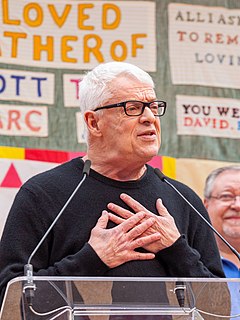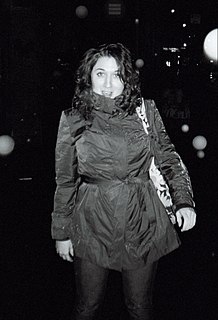A Quote by Terry Tempest Williams
I think direct political action, civil disobedience, in particular, is something to be taken very seriously.
Related Quotes
The state says: "Well, in order for it to be legitimate civil disobedience, you have to follow these rules." They put us in "free-speech zones"; they say you can only do it at this time, and in this way, and you can't interrupt the functioning of the government. They limit the impact that civil disobedience can achieve. We have to remember that civil disobedience must be disobedience if it's to be effective.
I see a lot of individual action when it comes to environmental questions really as a form of politics as a way of communicating with political leaders, much in the same way that acts of civil disobedience during the civil rights' movement were really acts of political communication, trying to get laws changed rather than based on the thought that the individual action would really change the practices of segregation.
Okay, so here's my question: When did civility become incompatible with protest? Why do some people consider civility an antonym - anathema, even - to political action and dissent? Because, and I'm raising my voice, it's not. Have we forgotten how Mahatma Gandhi used nonviolent civil disobedience to free India from British rule and inspire civil rights movements worldwide?
I think the big turning moment was when I joined the student political action club and started studying nonviolent civil disobedience in response to the Iraq War. The first anti-Bush protest in Atlanta was the first protest that I'd ever been to, and I helped organize the school walkout when I was a junior. It was a really solidifying moment.
Civil disobedience can help to focus attention on a particular injustice. It was used historically to highlight wrongs in society - turning ancient redwood forests into paper towels or preventing people from sitting down at lunch counters because of the color of their skin. On climate change, we have not seen strong leadership coming from Washington, DC.In particular the president has an enormous opportunity to follow up on his inaugural speech with a concerted course of action to aggressively take on a clean energy transition.

































